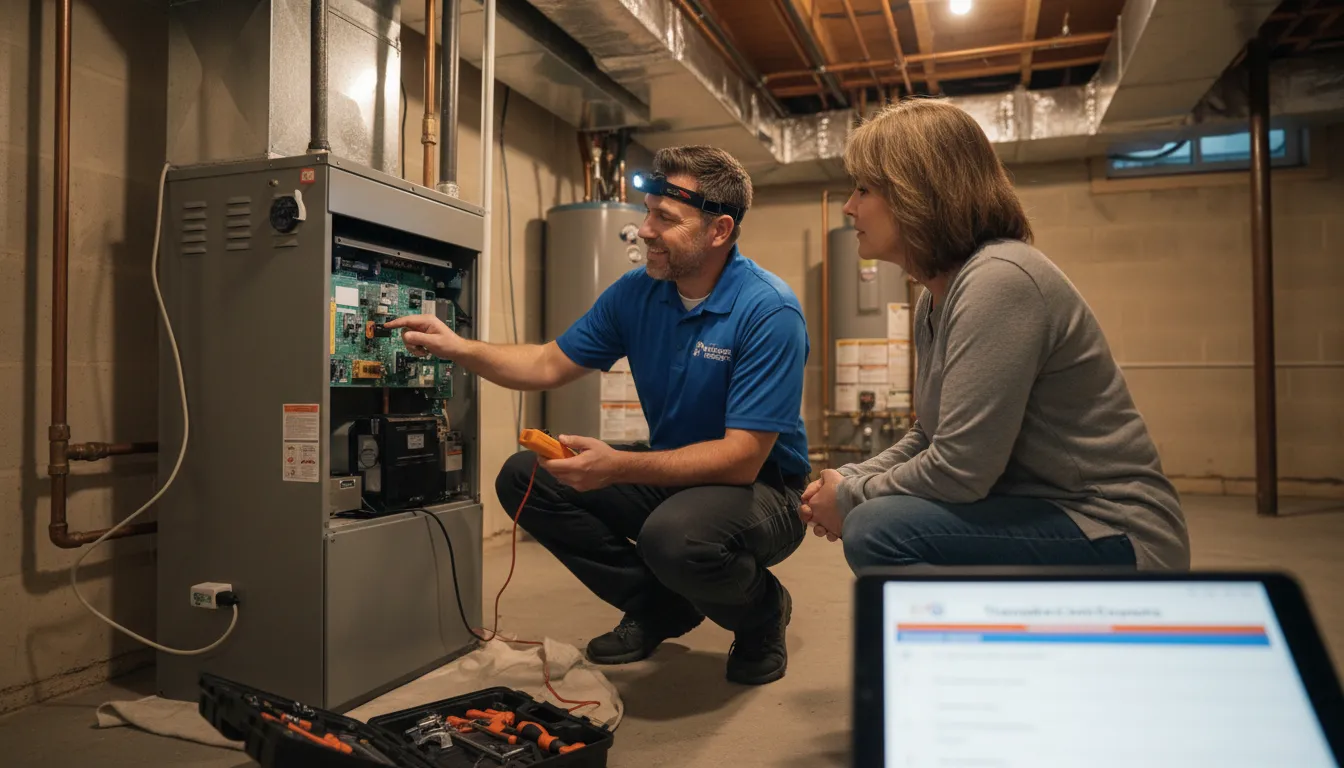
Understanding the Importance of Proper Utility Management
Selling a home involves numerous tasks, one of which is managing the utilities. Proper utility
management is crucial to ensure a smooth transition for the buyer. Missteps can create significant
issues for the new homeowner and lead to unnecessary complications.
Why Timing Matters
Timing when to turn off utilities is essential. If utilities are turned off too early, it can cause
inconvenience and potential damage to the property. Conversely, if they are left on for too long,
sellers may incur unnecessary costs.
Coordination with the Buyer
Effective coordination with the buyer is key to a seamless utility transition. Sellers should
communicate their plans and work with the buyer to set a mutually agreeable timeline for
transferring utilities.
Setting a Transfer Date
Setting a specific date for the utility transfer is vital. This date should typically be the day of
closing or a day after. This ensures that the buyer has uninterrupted access to essential
services.
Utilities to Consider
Several utilities need to be managed during the sale process. These include:
- Electricity
- Water
- Gas
- Internet
- Trash collection
Electricity
Electricity is often the most critical utility. It powers essential systems such as HVAC, lighting,
and appliances. Ensuring a seamless transfer prevents disruptions that could affect the buyer's
move-in experience.
Water
Water service is essential for daily activities and maintaining the home's condition. Sellers should
ensure water service remains active until the buyer officially takes possession of the property.
Gas
Gas is vital for heating and cooking. Coordinating the transfer of gas service ensures the buyer can
use these essential functions without interruption.
Internet
Internet service is increasingly important in modern homes. Sellers should coordinate with the buyer
to ensure a smooth transition of internet services, avoiding any disruption in connectivity.
Trash Collection
Trash collection services should be maintained until the final move-out date. This ensures that any
remaining waste is properly disposed of, leaving the property clean for the new owner.
Explore Utah Real Estate

238 N 2020 W ##69, Hurricane, UT
$1,050,000
Bedrooms: 6 Bathrooms: 6 Square feet: 3,054 sqft

1040 S SUMMIT CREEK DR, Woodland Hills, UT
$2,845,000
Bedrooms: 6 Bathrooms: 6 Square feet: 5,753 sqft

334 E 1150 N #78, Salem, UT
$661,900
Bedrooms: 3 Bathrooms: 2 Square feet: 3,391 sqft
Steps to Transfer Utilities
Transferring utilities involves several steps:
- Contact utility providers
- Schedule service end date
- Notify the buyer
- Confirm transfer completion
Contact Utility Providers
Sellers should contact each utility provider to inform them of the upcoming sale. Providers typically
require advance notice to process the transfer efficiently.
Schedule Service End Date
Setting a service end date is crucial. This date should align with the closing date or a day after,
ensuring the buyer has access to essential utilities immediately upon taking possession.
Notify the Buyer
Communication with the buyer is essential. Sellers should inform the buyer of the scheduled utility
transfer dates and provide any necessary contact information for the utility providers.
Confirm Transfer Completion
Finally, sellers should confirm with each utility provider that the transfer has been completed. This
step ensures there are no loose ends and that the buyer can enjoy uninterrupted service.
Common Mistakes to Avoid
Several common mistakes can disrupt the utility transfer process. Avoiding these pitfalls ensures a
smoother transition for both parties.
Turning Off Utilities Too Early
One common mistake is turning off utilities too early. This can lead to significant inconveniences
and potential damage to the property, especially in extreme weather conditions.
Failing to Coordinate with the Buyer
Another mistake is failing to coordinate with the buyer. This can result in confusion and gaps in
service, causing frustration for the new homeowner.
More Properties You Might Like

555 N 9TH ST, Montpelier, ID
$679,000
Bedrooms: 8 Bathrooms: 4 Square feet: 7,400 sqft

1843 W GLENCOE MOUNTAIN WAY #705, Park City, UT
$9,350,000
Bedrooms: 3 Bathrooms: 4 Square feet: 2,490 sqft

11344 S WILLOW WALK DR, South Jordan, UT
$439,900
Bedrooms: 3 Bathrooms: 3 Square feet: 1,703 sqft
Not Confirming Transfer Completion
Not confirming the completion of the utility transfer is another common error. Sellers should ensure
all transfers are finalized to avoid any service interruptions for the buyer.
Special Considerations in Utah Real Estate
Utah real estate has unique considerations due to its climate and regional characteristics.
Understanding these factors can help sellers manage utilities more effectively.
Climate Considerations
Utah's climate can vary significantly. In colder months, maintaining heating services until the
transfer is complete is crucial to prevent damage from freezing temperatures.
Regional Utility Providers
Familiarity with regional utility providers can streamline the transfer process. Sellers should know
the contact information and procedures for local providers.
Working with Real Estate Advisors
Real estate advisors can provide valuable assistance in managing the utility transfer process. Their
expertise ensures all aspects of the sale are handled efficiently.
Conclusion
Properly managing the transfer of utilities is a critical aspect of selling a home. By coordinating
with the buyer, setting clear transfer dates, and avoiding common mistakes, sellers can ensure a
smooth transition. In Utah real estate, understanding the unique regional considerations and working
with experienced advisors can further streamline the process, ensuring a positive experience for
both seller and buyer.
Related Articles:














